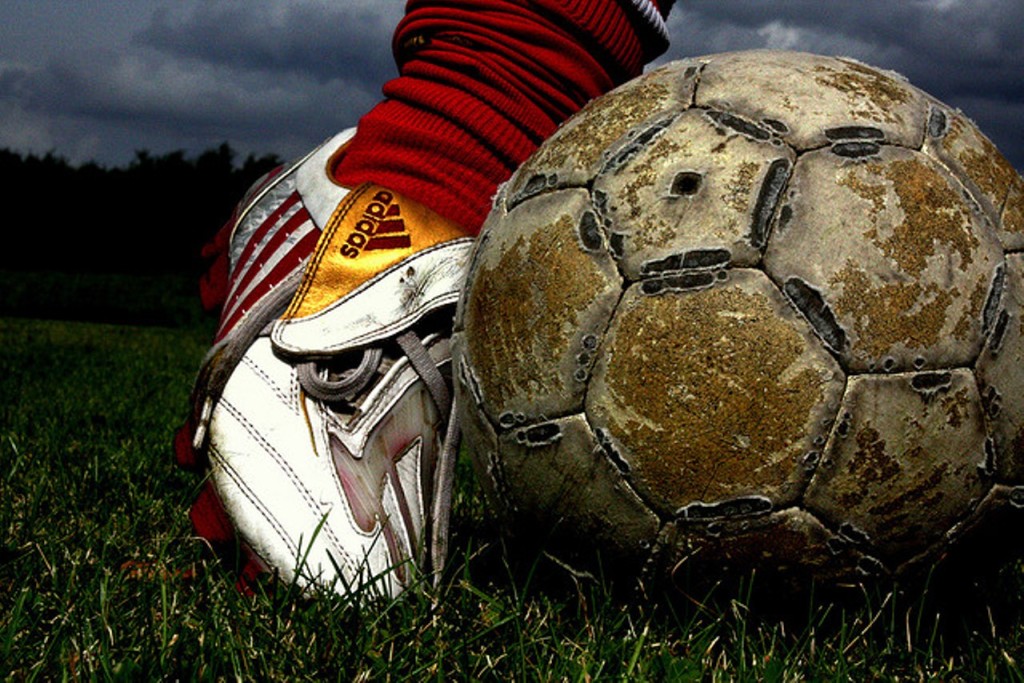UEFA EURO 2016 is over and we know the winners – the Portuguese who, in addition to the ability to step forward without winning matches, became famous by common simulating fouls. However, this problem does not refer only to this small nation. Footballers, in general, are labelled as gussies and dough-faces who only play-act and fail to settle any physical clash. Even the slightest touch brought them down! The subsequent search for causes often refers to effeminacy of footballers or their low threshold of pain. This is, however, an explanation which would not satisfy any economist.
Economists are people without prejudices. They do not take the explanation that someone systematically behaves in a particular way because he/she is “different”. When the economist sees big cars in the U.S. and small in Europe, he/she does not settle for the explanation referring to differences in culture, lifestyle or very likely size of something else. He/she rather focuses on differences in restrictions which individuals have to face during decision making – so for example: different price of gasoline. Similarly, in the case of football players, the economist should not settle for some ad hoc explanation referring to the lack of virility pain threshold or nature of players.
How might the ear-taking explanation look like? Simple assertions of formulas of people’s behavior lie at the heart of economics… On the one hand, when something becomes relatively cheaper, demand increases, and vice versa, when something becomes relatively more expensive, our willingness to buy it is declining (downward-sloping demand). On the other hand, when something becomes relatively more profitable, we do it more, and when returns from it drop, our willingness to perform this activity drops as well (upward-sloping supply).
The biggest misunderstanding between the general public and economists is that the former think that when economists are talking about the relative price or costs and benefits, they are talking only about monetary incentives, money. It is not the case. Economists are talking about all categories which related to anybody’s consideration of benefits or costs. Benefits coming from marriage to woman’s hands may be a new piece of jewelry and a sense of security and confidence, while costs may be to withstand those weeks with a husband during the football championships. This brings us again to the football, where we try to explain pathologic tendency of football players to play-act on the basis of specific incentives and constraints faced while playing football.
Football is characterized as a collective sport with a relatively small number of goals as opposed to other collective sports (e.g. ice hockey, indoor football, basketball, or handball) which means that one goal may be of extreme importance in the match. Certainly, more important than in other sports. The second significant characteristics is the way of performing the penalty kick, i.e. penalty for a foul in the penalty area. Setting the parameters such as distance of the penalty kick from the goal, size of the goal and size of the ball form situation in which the likelihood of scoring is quite high, up to 75-80 percent. These two features together create a structure of incentives which encourage a rational football player to play-act before the goal in any slightest contact with the opponent. If the football player succeeds with play-acting/diving, there is a relatively high probability that he or his teammate scores a goal, and additionally this goal is very likely to decide the match.
The other side of the equation of incentives faced by football players are the costs of play-acting. These incentives are influenced mainly by inability of referees to use the video in assessing fouls. Whereas football lacks these technologies, potential costs of possible detection of football players’ deceptions decrease. Football players, therefore, often fall without any contact from the side of the opponent.
Moreover, potential costs of play-acting (yellow card and loss of the ball) are relatively low even though the referee reveals the fraud as in that case the other team does not get the opportunity for penalty kick.
The question remains – do football players have to dive and play-act also outside the penalty area? The answer is yes, they have to. Even if most of the fouls are held out of the penalty area and referee does not whistle each foul that football player “necessitated”, the situation still creates something like a future commitment. The referee is only a human and must decide within a second (and without the possibility to take advantages of modern technologies) and is a subject to emotions and pressure. When he does not whistle several controversial situations against one team, it creates a kind of sense of commitment and he will whistle other – perhaps also controversial situation. No referee wants to be perceived as if he systematically favored only one team. And just another controversial situation might result into the penalty kick. Thus, football players are creating a capital investment in anticipation of future revenues by diving – and those are, as we have shown, relatively high compared to other sports.
Football as a sport is not selective about effeminate athletes who have a low pain threshold and pathological inclination to deception. Football players are just the same as other professional athletes; the only difference is in the environment and referring constraints to which they must face in pursuit of victory. It is the football game and its rules which bring together a number of specific constraints and create the environment with relatively high revenues and relatively low cost of play-acting.
Translated by Peter Adamovský



